Earlier this month in the Albert and Shirley Small Special Collections Library, a happy group of alumni, students, and staff posed in front of a portrait of Fernando Bolívar, who was likely the first Latin American student at the University of Virginia. The nephew and adopted son of the Venezuelan leader Simón Bolívar, Fernando enrolled at the University in 1827. He is the namesake for important hubs in UVA’s Latinx community today, including the student residence Casa Bolívar and the Bolívar Network, an alumni steering committee.
The group was gathered for the UVA Alumni Association’s inaugural Juntos weekend, a celebration for Latinx alumni. (The Spanish word “juntos” translates to “together” in English.) As part of that weekend, UVA Library sponsored two events on April 15, including a presentation of Simón and Fernando Bolívar’s artifacts held in Special Collections. For that event, called “A Closer Look: The Bolívar Collection,” UVA Library curators and archivists displayed Simón Bolívar’s silver and manuscripts, Fernando Bolívar’s papers, and portraits of both men that were donated to UVA in 1944 by the Venezuelan government. They also presented more modern items related to the Latinx experience at UVA and the Bolívar Network’s founding.
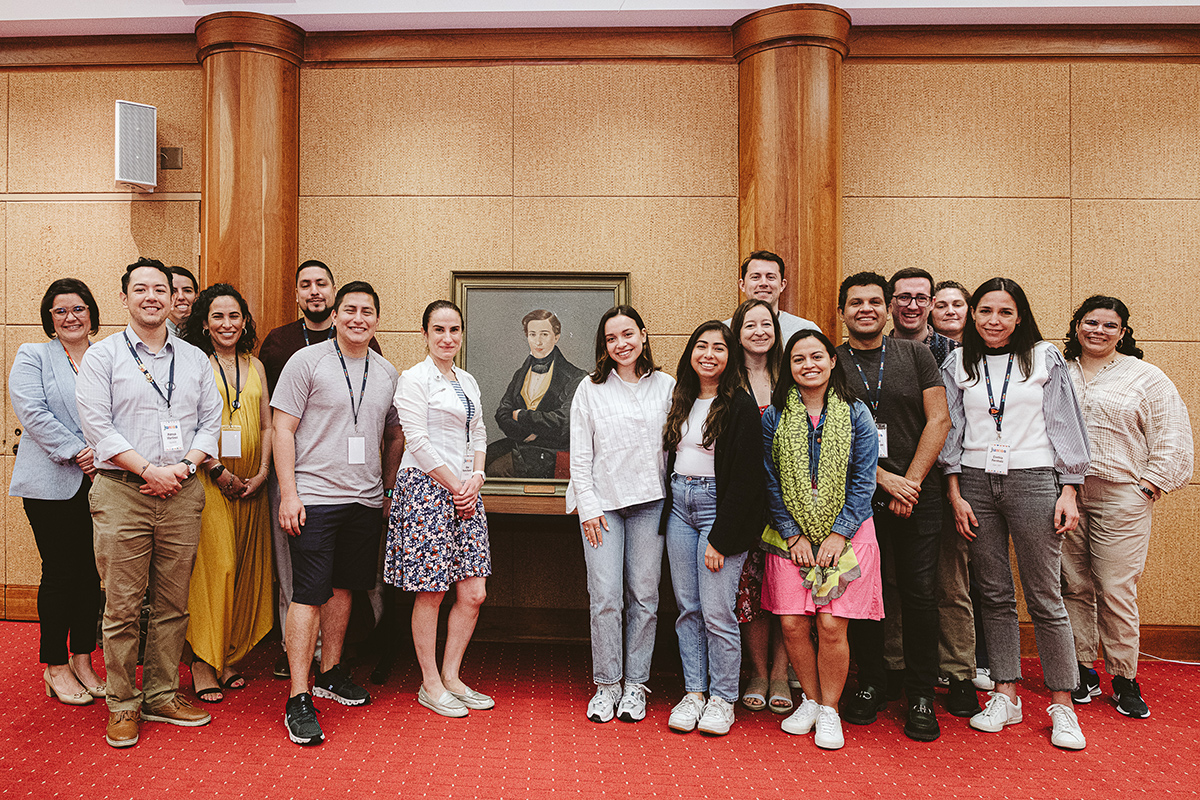
“The team that interpreted the objects from the Library’s Bolívar family collection were so thoughtful in their explanations and care for the precious items and their stories,” said attendee Gina Flores, a 2000 UVA alumna and founding student member of the Bolívar Network. “I appreciated the 1827 Bolívar history paired with more current Latinx histories. Seeing some of the founding documents of the Bolívar Network from decades ago reminded me how important it is to collect and preserve UVA Latinx history, past, present, and future. Seeing our community’s history validated my connection to UVA and sense of belonging as an alumna.”
That same morning, the Library partnered with Microsoft’s HOLA Network (its internal Latinx employee resource group), to host a breakfast in Special Collections’ Harrison-Small Auditorium, where Latinx Microsoft employees shared video testimonials about the power of Latinx community. “A weekend like this one is an opportunity for units, schools, and groups across the University to reflect on the journey of Latinx students, faculty and staff since the University’s founding,” said Catalina Piatt-Esguerra, the Library’s Associate Dean of Inclusion, Diversity, Equity, and Accessibility, during the Microsoft event. “It’s a weekend that reminds us of the impact of community and the power of representation.”
Take a look below at images from that day, captured by photographer and Library employee Eze Amos.
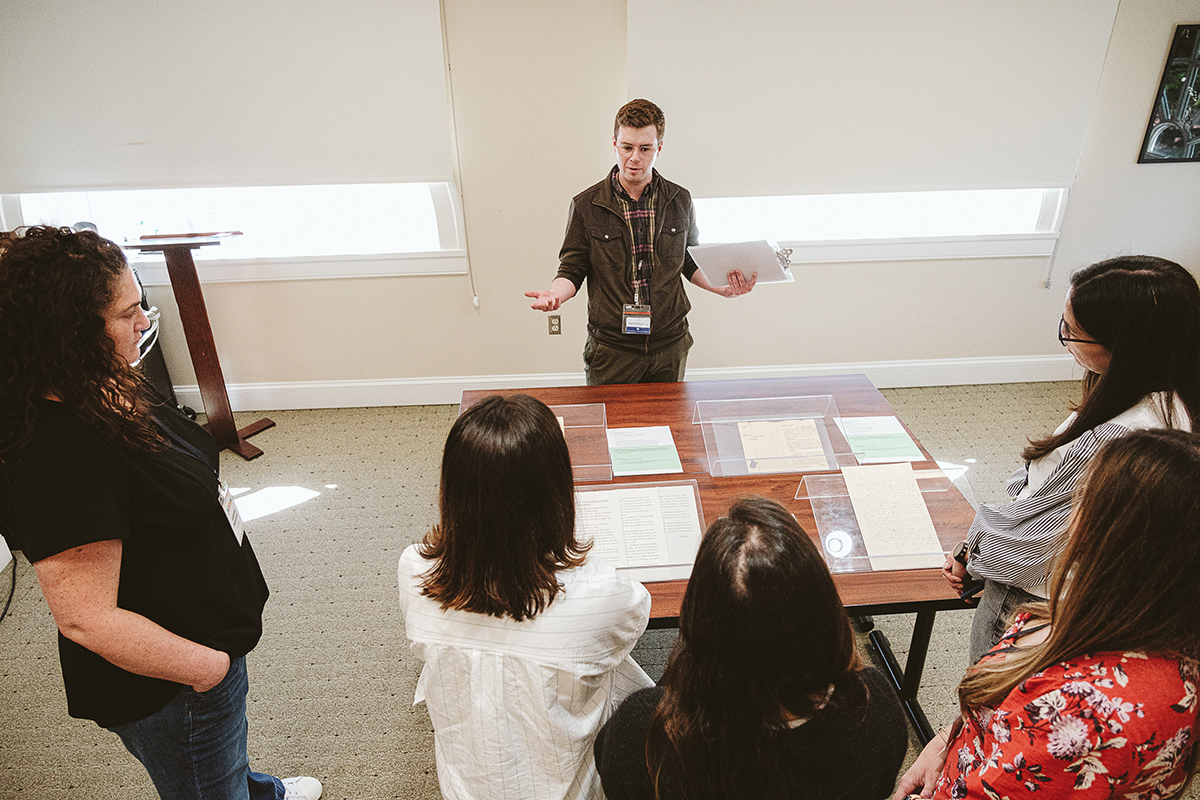
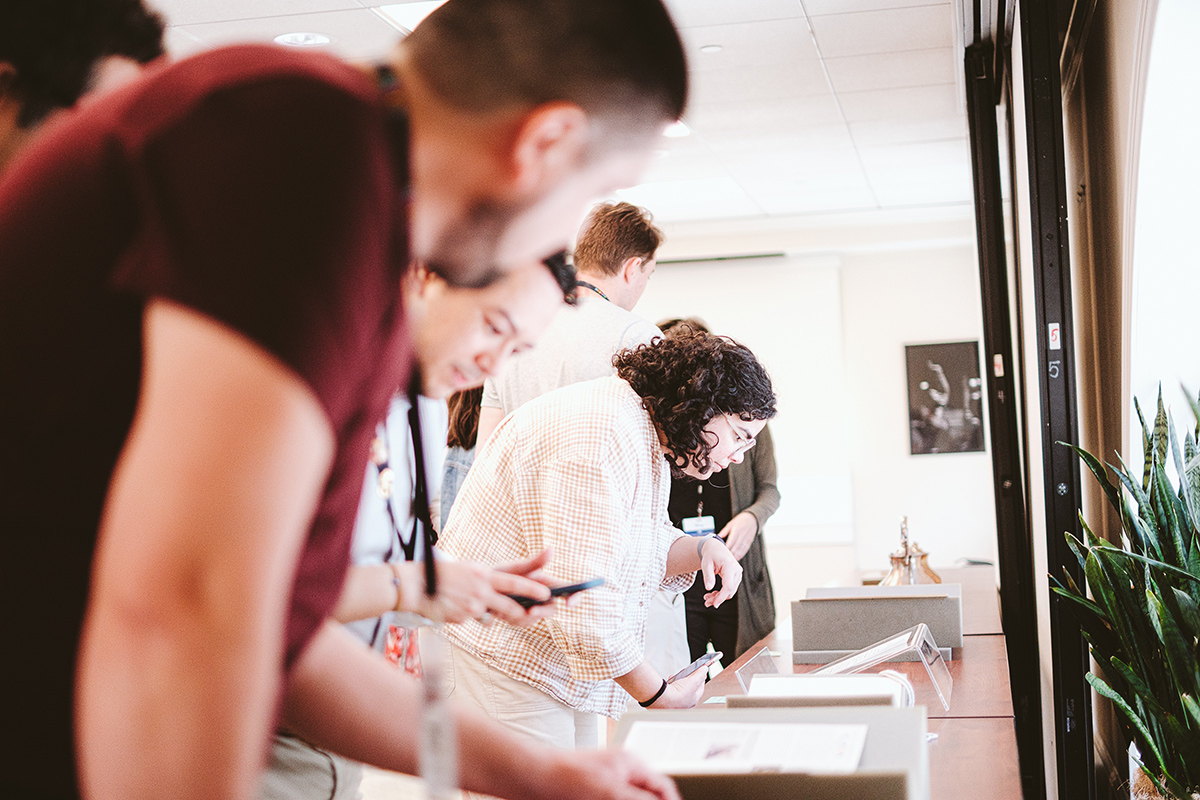
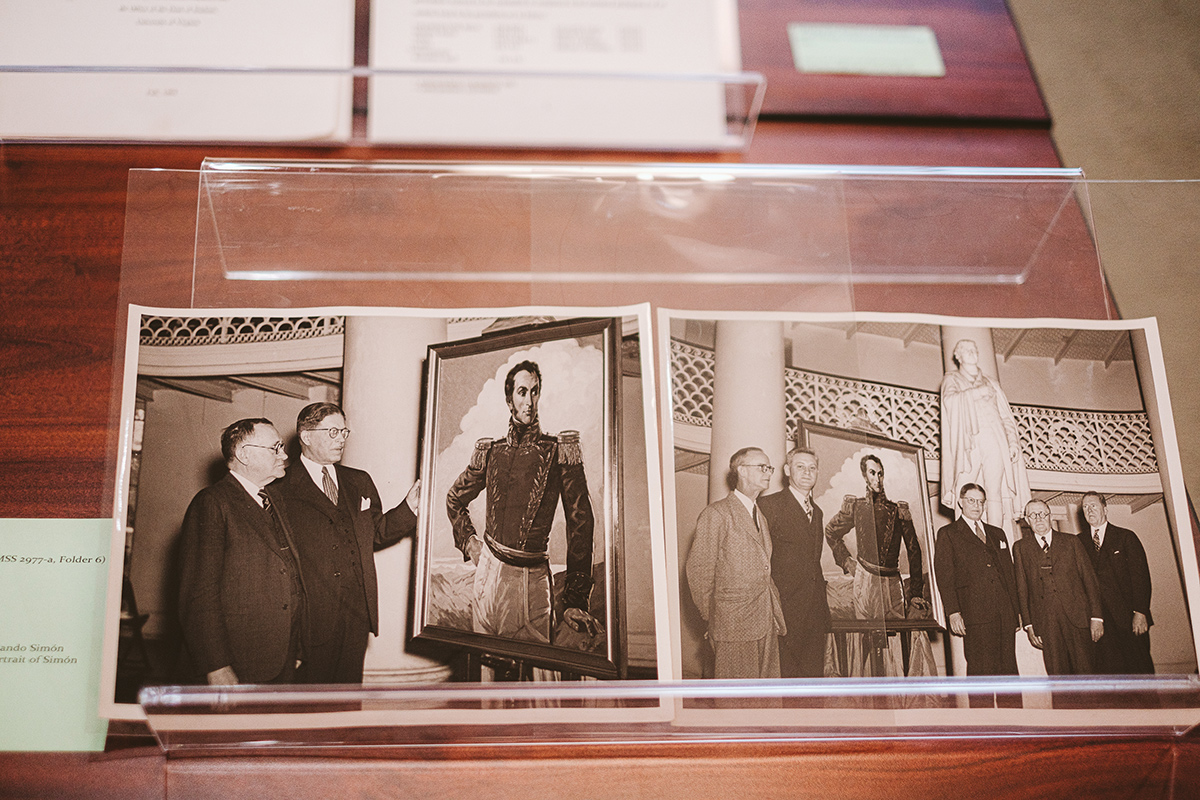
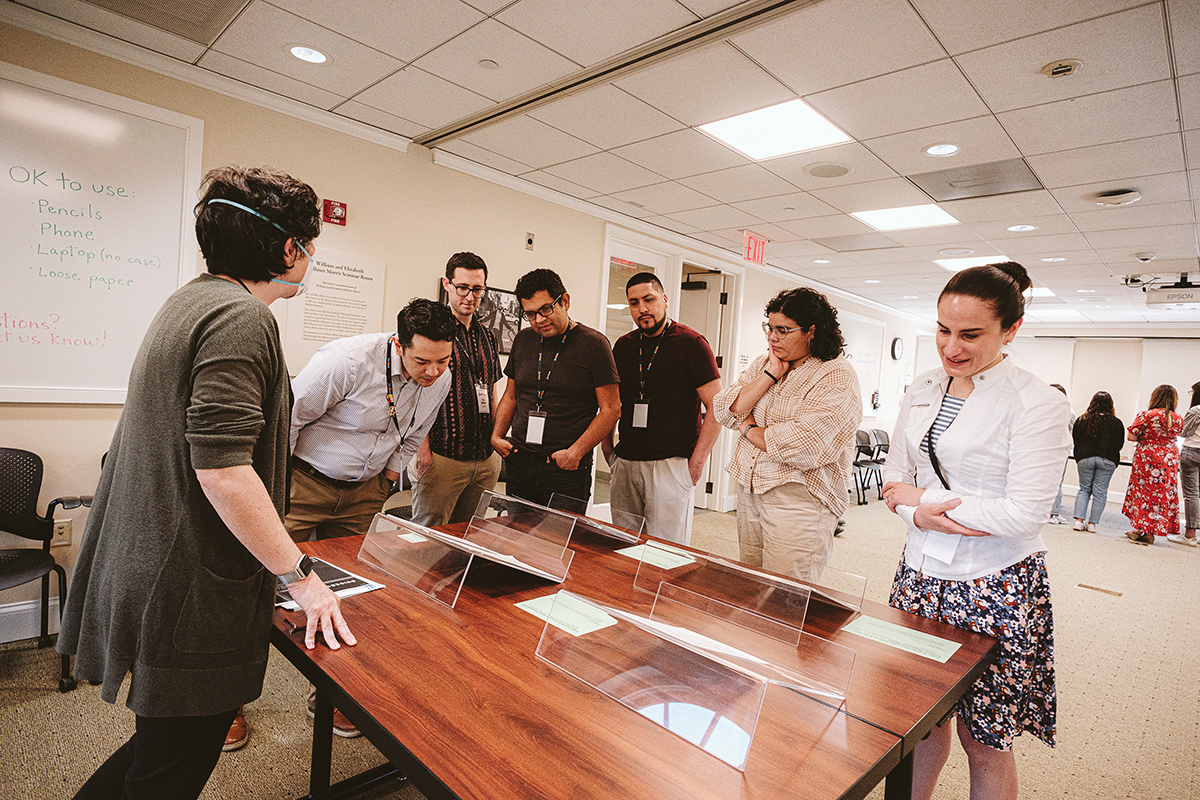
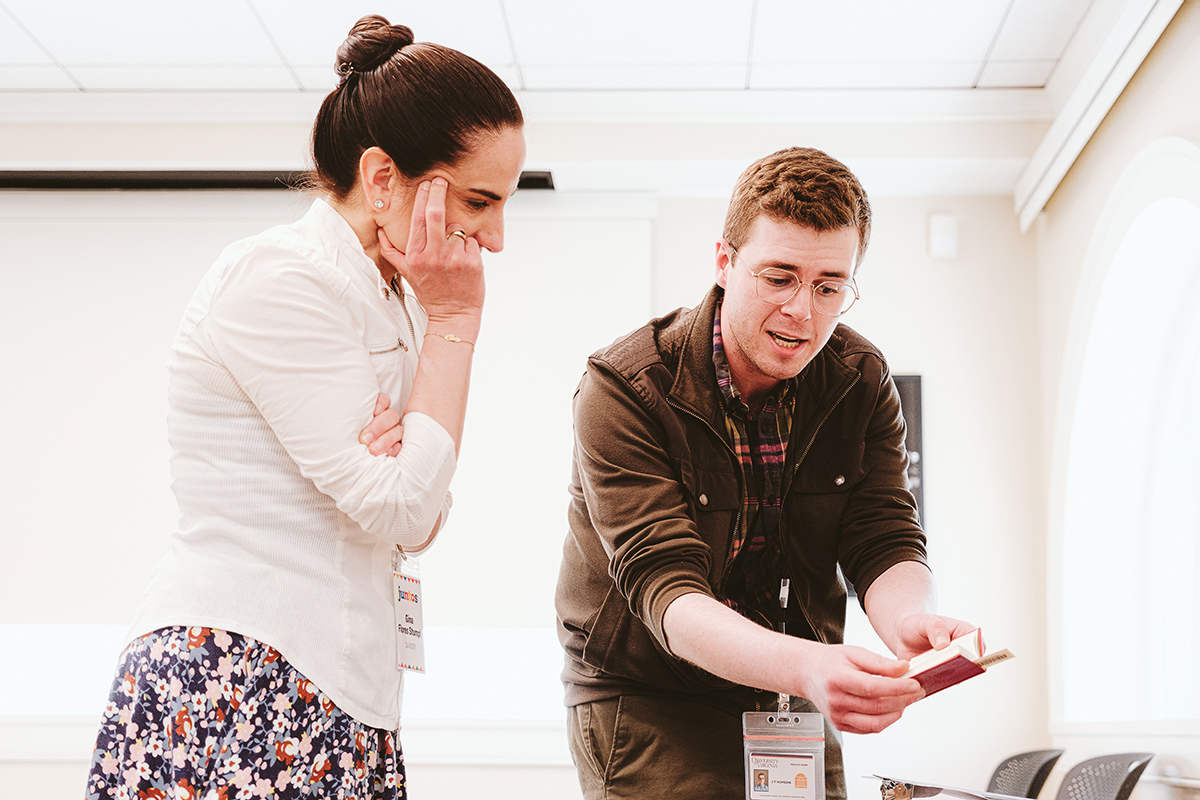
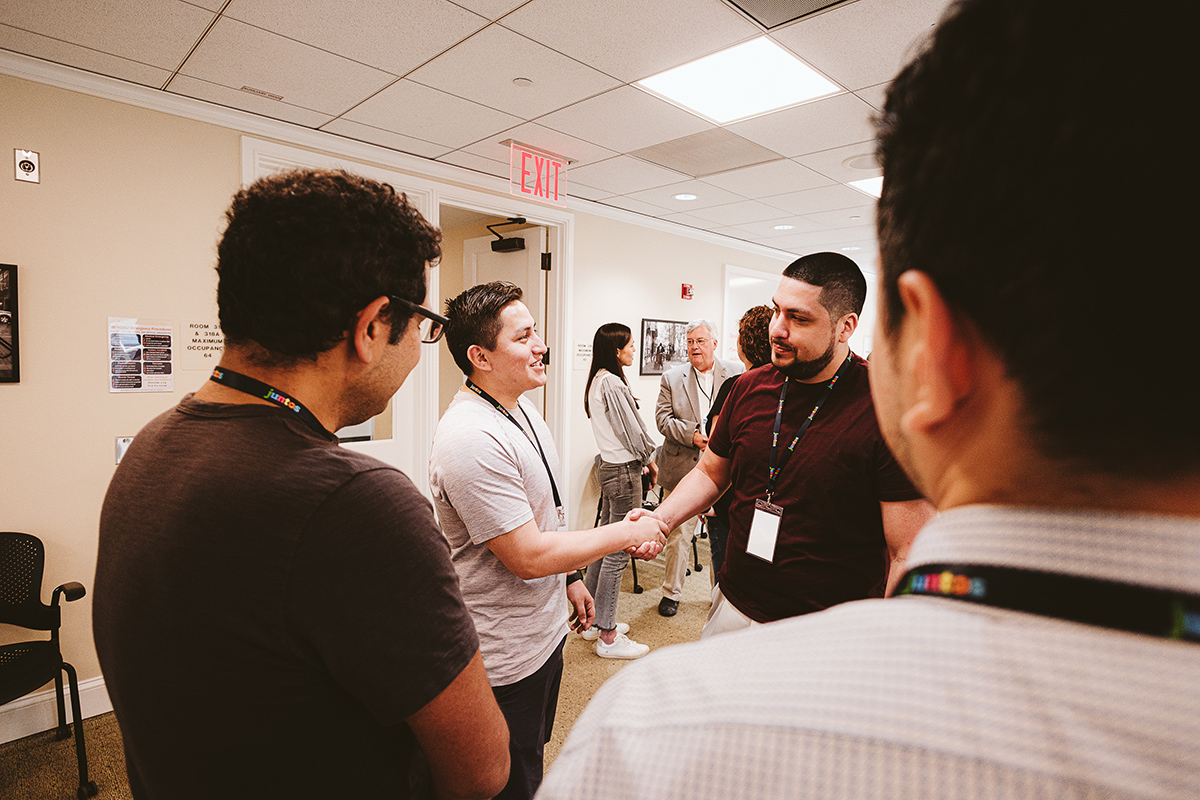
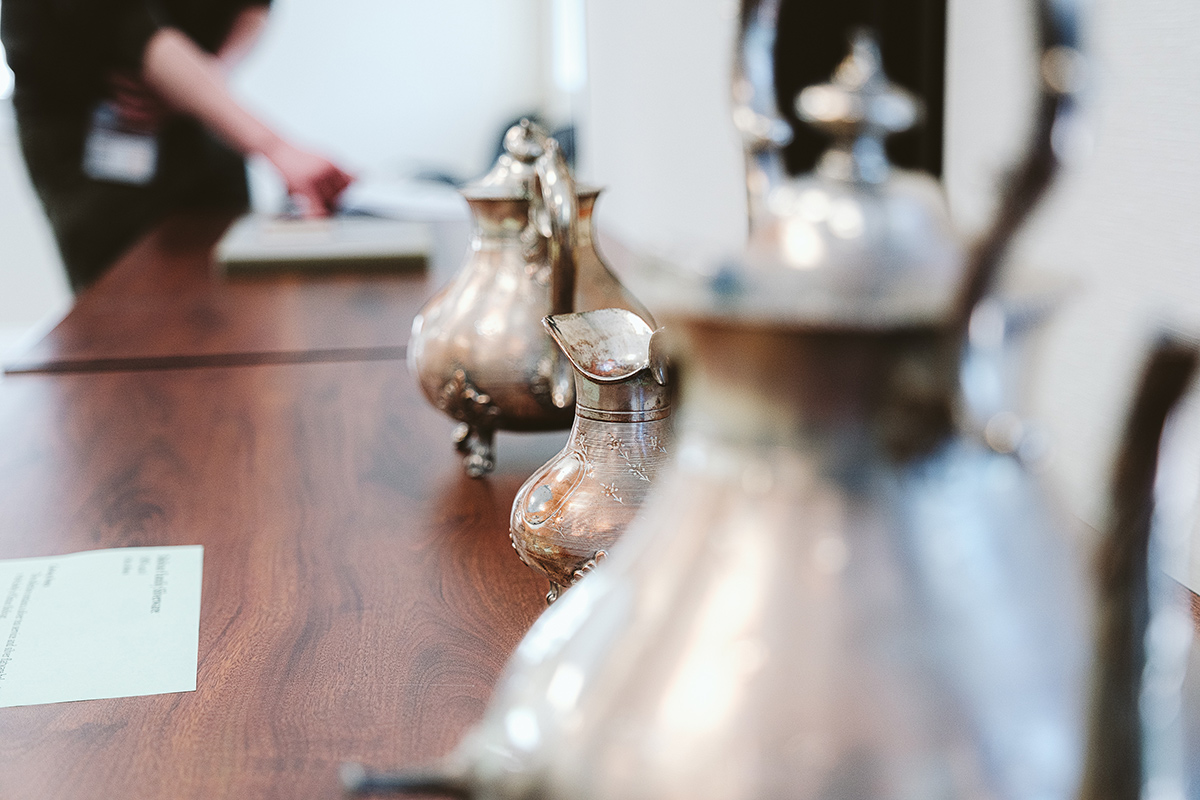
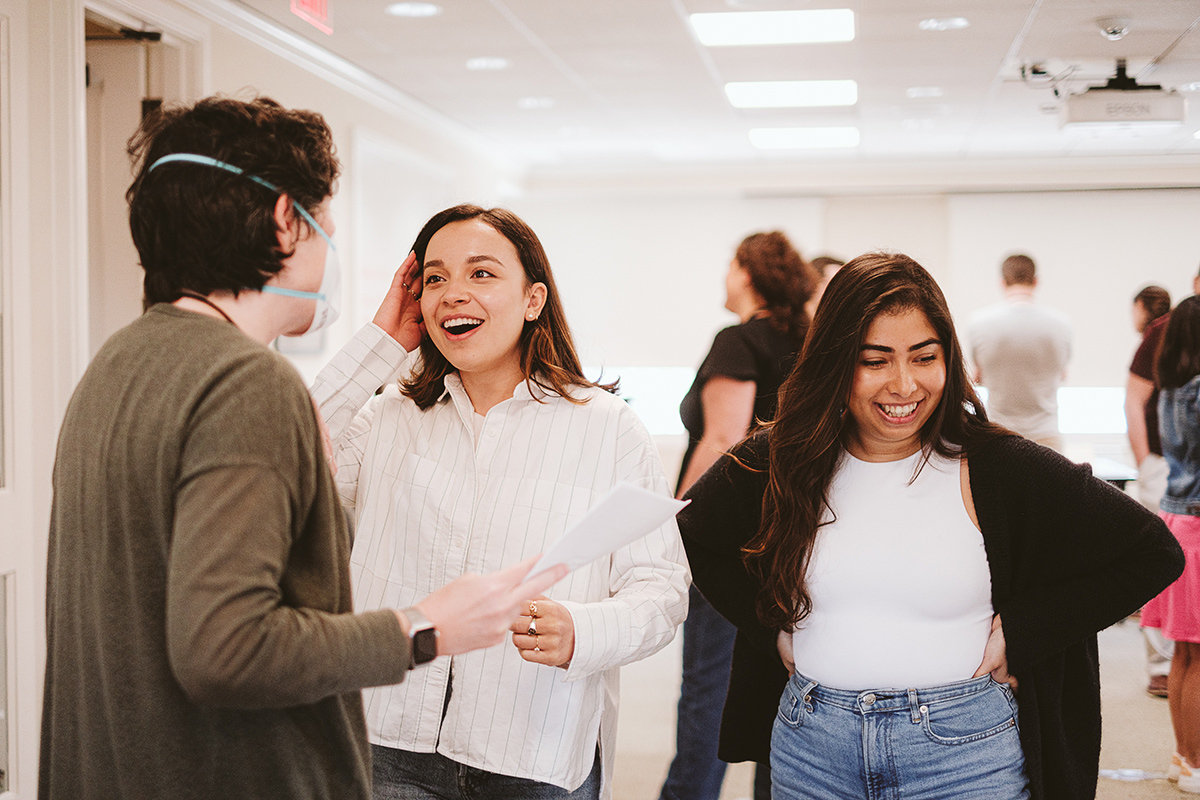
For more about the Bolívar Collection, check out these links in the Library catalog:
- Fernando Simón Bolívar papers (MSS 12214)
- Papers pertaining to Fernando Simón Bolívar (MSS 38-205)
- Bolívar Family Silverware (MSS 14121)
